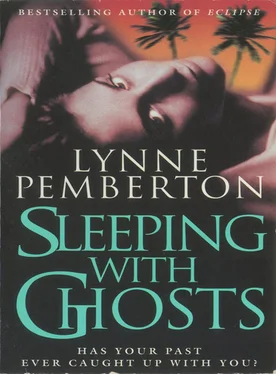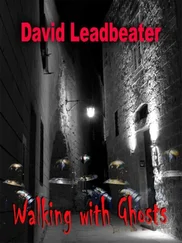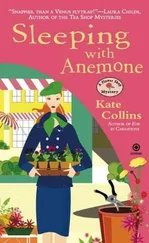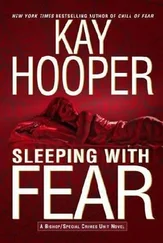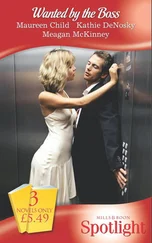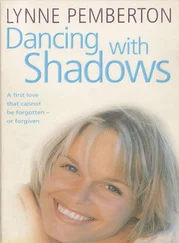Kathryn loomed above her aunt who sat bolt upright in the centre of a small sofa, tiny hands clasped tightly in her lap, seemingly oblivious to Kathryn’s bewilderment.
‘You look just like your grandfather, Kathryn; in fact you’re the image of his mother, Eva. She was very beautiful, you have the same flawless skin, and honey-coloured hair.’
Silence so loud it was deafening filled the small room. An icy chill ran up Kathryn’s spine, and her blood went cold.
‘Anyway, I shouldn’t worry about your grandfather now; he died in active service, on 10th November 1944. Suddenly distracted, Ingrid looked past Kathryn towards the bay window overlooking the front garden. ‘I must prune the roses this afternoon. I’ve got a beautiful display, don’t you think?’
Following her aunt’s eyes to the cluttered foliage, Kathryn tried to pick out the rose bushes in the dense and gaudy profusion of untidy bedding plants virtually covering the tiny front garden. Forcing her voice to respond evenly, and thinking how incongruous it was to be discussing an English garden in the same breath as World War Two, and the Nazis, she said, ‘Magnificent, Aunt Ingrid. Mother always said you had green fingers.’
At this Ingrid reached forward, startling Kathryn as she grabbed her bare forearm. Her hand, callused by years of hard work, bit into the flesh as she forced her niece down on to the sofa next to her, so close their thighs touched. Kathryn recoiled from the smell of stale fish in the old woman’s breath when she spoke.
‘I can’t believe your mother ever said anything good about me. Freda hated me. I was the favourite you see, but she thought she was. Oh yes, Freda deluded herself all her life, always so vain and insolent, even as a child, kissing and cuddling Vater. But I knew it was me he preferred, even though she was prettier. I was musical, I played the piano and the violin; my father adored music, he had ambitions for me to become a concert pianist. Father always told me that I was talented, and that I would go far.’
Kathryn thought ironically that had Von Trellenberg lived, he would have been disappointed to see exactly how far his younger daughter had gone. Married at eighteen to a brutal man who had systematically abused her and her son Stefan, one night Ingrid had retaliated – puncturing Karl Wenzel’s lung with a carving knife. He had survived, but only just, and afraid to face his wrath, Ingrid had fled to join her sister in England. Kathryn would never forget her own childish excitement at the prospect of her aunt and cousin coming to live at Fallowfields. She had anticipated fun and laughter to evict the numbing silence that had taken up residence after her father and mother had divorced.
Instead her hopes had given way to bitter disappointment: Ingrid turned out to be surly and bad-tempered, whilst her son Stefan, who at fourteen was two years older than Kathryn, was sullen and menacing in his quiet cunning.
With a pang of contrition, Kathryn recalled her delight when, eighteen months later, Ingrid and Stefan had moved out. Ingrid, at Freda’s insistence, had found a job as a seamstress at a shop in the small town of Cranleigh. With grudging reluctance, Freda had then bought her a cottage on the outskirts of the town and, having done so, felt no more obligation to the younger sister she had always detested.
Last week, at her mother’s funeral was the first time Kathryn had seen her Aunt Ingrid for fifteen years. She had aged beyond recognition: an old woman standing alone in the church vestibule, leaning heavily on a walking stick, her face framed by a shock of white hair that could have been momentarily mistaken for a hat. It wasn’t until this figure was joined by a tall, good-looking young man that Kathryn knew it was her Aunt Ingrid. She would never forget Cousin Stefan’s penetrating midnight blue eyes; his gaze had terrified her when she was twelve, and it was still chilling twenty-two years later.
Ingrid began to rock to and fro, gazing unblinking into space. With a sense of shock, Kathryn stared into the liquid depths of her vacant eyes thinking about something her father used to say to her mother. ‘Your sister’s not all there.’ As a child, Kathryn had always wondered what piece was missing. With increasing unease, she chose her next words carefully.
‘You and Freda changed your name to “Hessler” – why?’
A hush followed, then Ingrid uttered a soft moan and answered. ‘It was Freda’s idea. She said it was best to assume new identities in order to make a fresh start, because it would be simpler.’ Ingrid could hear her sister’s voice as clearly as if it were yesterday: We must reinvent ourselves; the children of Nazis will be ostracized and made to suffer, like the Jews. It’s for the best, Ingrid, believe me …
‘When the war ended, I was only sixteen. But Freda was eighteen and very strong-willed; all she could think or talk about was how she intended to leave Germany and start afresh. She was very attractive, in a sultry sort of way; everyone told her she looked like Marlene Dietrich, but I could never see it. Before she met Richard, your father, she was sleeping with an American officer. I can’t remember what he was called now, it was one of those ridiculous American names like “Chuck” or “Brad”. He was working in the office for relocation of refugees. It was all such a mess after the war: misplaced people with no homes, nowhere to go. Anyway, this officer issued false papers for Freda and myself. I wanted to tear them up when Freda told me with triumph that she’d used not only her body to bribe the American, but also a necklace belonging to our mother. A beautiful old piece, that had been handed down through several generations. It was set with over a hundred baguettes, and a fifteen-carat flawless pear-shaped diamond. God knows what a necklace like that would be worth today!’
Ingrid was so preoccupied with her story she didn’t hear Kathryn’s sharp intake of breath, nor did she notice her look of profound shock as she tried hard to absorb what her aunt was telling her.
Kathryn had always known her mother was determined, but to prostitute herself ? She found it hard to accept she would stoop so low. There were a million and one questions racing around her head, but she kept quiet and allowed Ingrid to continue without interruption.
‘I will never forget the very first time I saw the necklace. I must have been about four or five. My mother was dressed for a state occasion, and I whispered to my nanny that Mama looked like a princess. My mother leaned forward to kiss me, and I stretched on tiptoe to touch the tip of the diamond drop gleaming against her bare neck. Her perfume filled my nostrils as she whispered in my ear, “This necklace will belong to you one day, my little Ingy.”
‘So you can imagine, the thought of some loud American woman, strutting around in a seventeenth-century Von Trellenberg heirloom, made me feel physically sick. But Freda merely pooh-poohed my protests, insisting that desperate means required desperate measures, and that if we were to go forward we had to forget the past. Then Freda got sick, and as usual got lucky, meeting your father like she did during her stay in hospital.’
Ingrid felt the old familiar stab of jealousy as she recalled her elder sister’s excitement at falling in love with the handsome English doctor, Richard de Moubray, who had asked her to marry him.
‘I begged Freda to take me with her to England, to a new life, but she was so full of herself and so madly in love with your father that the last thing she wanted was a sister to worry about. She thought I would be a burden.’ Pausing for a moment, eyes beginning to dart from side to side as if searching for something she had lost, Ingrid’s voice became ragged and disjointed as she muttered incoherently under her breath in German.
Читать дальше
